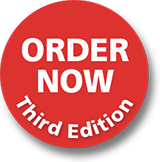Chapter 14 – Spelling
Chapter Summary
We use spelling to write. This is the main reason why children and adults must learn to spell—to write ideas and information for others to read. The words children need to learn are high-frequency words, words they ask for to use in their writing, topic words from curriculum areas and words they cannot spell.
When children begin to spell they say the word mentally to them- selves. Then they break off the first phoneme from the rest of the word, mentally sort through a repertoire of letters to find one to match the phoneme, write down the letter decided upon, recite the word again in their mind, recall the phoneme they have just spelt, subtract it from the word, and locate the next phoneme to be spelt, match the phoneme with a letter of the alphabet, and so on, until all the phonemes are spelt. Spelling for emergent readers and writers takes a great deal of effort until a bank of high-frequency words are learnt.
Assessing children’s spelling provides the teacher with information about what to teach. The errors can be analysed to find out what spelling strategies the child may be using. In order to spell, children need to use a range of strategies from look–cover–write–check to phonics, word building and, for the words that take special effort, mnemonics or memory triggers.
Study Questions
Main ideas
What is your definition of spelling? How would you explain the concept of spelling to parents?
What is prephonic spelling?
What is morphology and how does this apply to spelling?
Application to a developmental stage
What are the developmental stages of spelling?
Diverse learners
Many words in English can be decoded. Find out how English differs from Chinese and Hindi characters.
Assessment
Look at the high-frequency word list in this chapter. How many words can be easily decoded? Find six words that must be learnt by sight because they do not fit the phonic rules. Is assessing all high-frequency words by sight a good idea?
Teaching plans
Read about using mnemonics as a teaching strategy. Do you think mnemonics is a useful strategy? Provide examples for and against using mnemonics.

